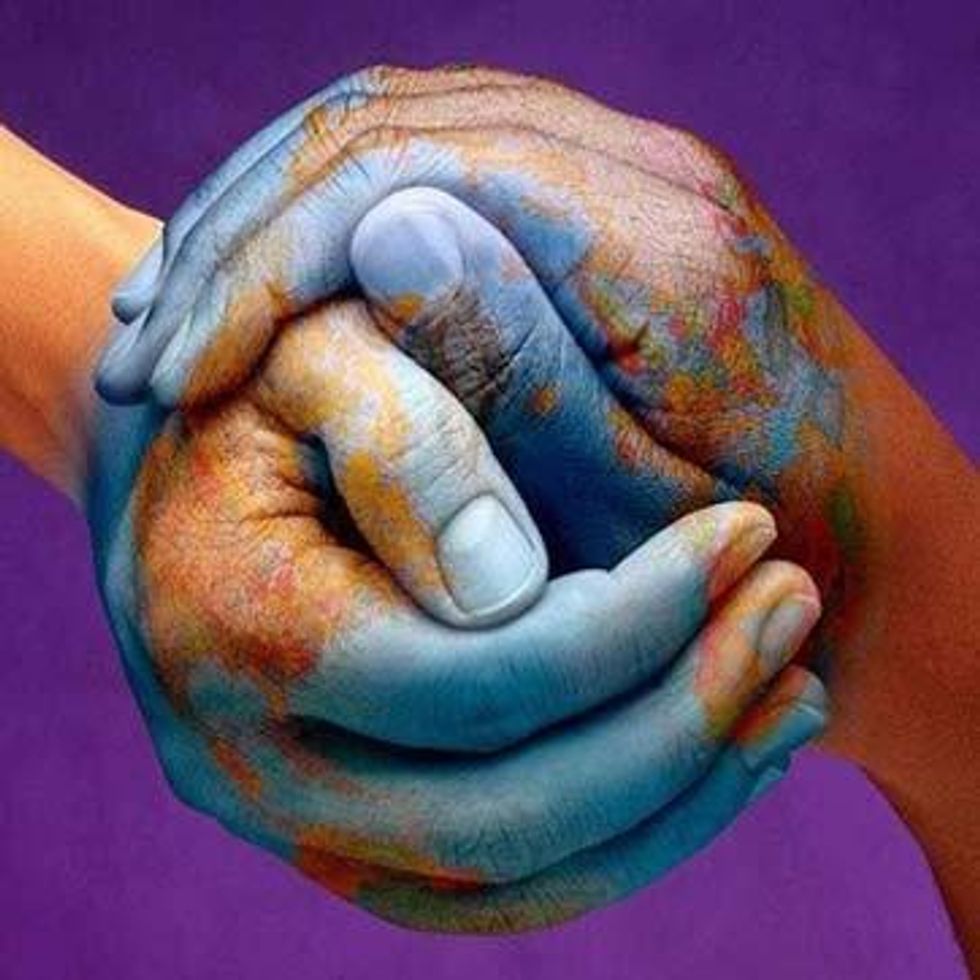DAVOS - The World Economic Forum's annual gathering is normally little more than a toast to the benefits of increasing global GDP, trade, and investment. But this year's meeting comes at a time when economic expansion can no longer be taken for granted, and when the uneven benefits of past growth are sparking mass social unrest.
So it is little wonder that doomsday scenarios about the "seeds of dystopia" and the risks of "rolling back the globalization process" are being dangled in Davos. The world's economic and political leaders stand warned: do globalization better, or it will be derailed by the growing legions of the discontented.
Leaders would be unwise to ignore this warning. Discussions in Davos must go beyond how to rectify the imbalances in developed countries' debt-to-GDP ratios. They must finally pay attention to the wider imbalances generated by unfettered globalization.
Popular anger is directed not only at the bank bailouts, soaring public debt, and bleak employment prospects of recent years. All around the world, people have fallen afoul of a two-track economic process whereby whole industries have been sacrificed to cheaper imports, whole regions have been consigned to abandonment or degradation, and whole populations have been frozen out of economic progress.
Nowhere are these imbalances more evident than in the global food system. Globalization has been wholeheartedly embraced in the service of feeding the world: bilateral and multilateral trade agreements have been put in place to allow food to flow from food-surplus to food-deficit regions.
Yet this model has failed spectacularly. The food bills of the Least Developed Countries (LDCs) increased five- or six-fold between 1992 and 2008. Imports now account for around 25% of their current food consumption. The more they are told to rely on trade, the less they invest in domestic agriculture. And the less they support their own farmers, the more they have to rely on trade. Countries that fall into this vicious cycle leave their citizens vulnerable to historically volatile prices on international markets, which means increased hunger and insecurity.
Despite the persistent challenges of hunger and food inequality, people are told to embrace more open markets, more trade, and more globalized economic processes. Yet open markets do not function as perfectly as many at Davos would like to think. Food moves where purchasing power is highest, not where the need for it is most urgent.
This blind embrace of globalization from above means missing out on key opportunities that do not fit the dogma. If we were to support developing-world small landholders, who are often the poorest groups, we could enable them to move out of poverty and enable local food production to meet local needs. Trade would complement local production, rather than justifying its abandonment.
Trade and investment agreements are the gateways through which globalization passes on its way to redefining a country's economic landscape, and they are increasing at an impressive pace. There are 6,092 bilateral investment agreements currently in force, with 56 concluded in 2010 alone.
That growth reflects the flawed economic model of the pre-crisis years, which relied on indifference to where growth came from, how sustainable it was, and who was benefiting from it. If we are to learn anything from the ongoing crisis, it must be to start asking the right questions.
Every new bilateral agreement, every chapter of globalization, should be measured against new criteria. How sustainable and how evenly spread will the macroeconomic benefits be? Will they facilitate genuine development and provide dignified opportunities to those who become economically displaced?
An EU-India free-trade agreement is now imminent - and could be the litmus test for how we reengage with globalization in the wake of the crisis. Some estimates suggest that the proposed tariff liberalization in the dairy and poultry sectors could threaten the livelihoods of 14 million very poor households in India, half of them landless.
Globalization involves winners and losers - that has been established. But losing out, for a subsistence farmer, means sinking into dire poverty and hunger. Is the denial of a vulnerable population's right to food an acceptable byproduct of a trade deal? Should the primary goal be to multiply the interests of powerful multinationals? Are these the economic processes that we want, or need?
These are the questions that leaders must ask at Davos. Globalization can survive the crisis. But not as we know it. Globalization must be taken back for the interests of the many.


